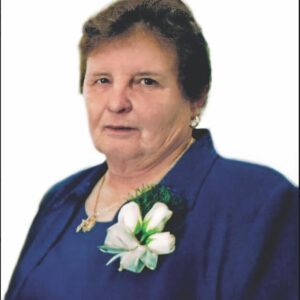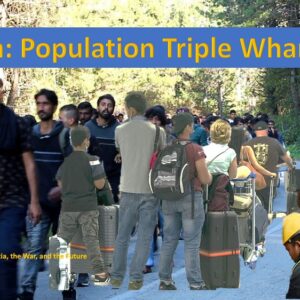Friday 1st September 2023 marked the tenth anniversary of Zvonko Busic’s death in Croatia. It can be said with certainty that watching former communists of Yugoslavia or their indoctrinated offspring creep into and take over the government of independent Croatia that fought fiercely and lost lives for its independence from communist Yugoslavia he took his own life in despair. Certainly, Zvonko Busic dedicated his whole adult life to freedom of Croatia from communism and Yugoslavia, for freedom, democracy, and human rights. Charged with air piracy, kidnapping, second degree murder, convicted by Brooklyn court, New York, in 1977 of hijacking a plane and planting explosives that, through members of New York Police Department’s reportedly reckless disregard for Busic’s instructions as to how to safely defuse the explosives, killed one policeman (Brian Murray) and injured three others, he served 32 years in an American prison and paroled in 2008 for good behaviour whence he returned to Croatia. Freedom fight activities and events in which he participated or led and was convicted of and sentenced for were all political activist pursuits for freedom of Croatia from communist oppression during the Cold War years were practically the only activities bar military coups that spoke the loudest towards achieving changes to governments. Certainly, there was no internet or social media to spread the message widely as post-Cold War years have brought.
Zvonko Busic and his colleagues formed a remarkable group of men (Zvonko Busic, Frane Pesut, Petar Matanic and Mark Vlasic; the latter three released from prison served for related convictions in 1988) and one woman (Julienne Eden Busic, Zvonko Busic’s American spouse, released from prison for related convictions in 1989) who championed the fight for Croatian independence (from communist Yugoslavia) on the international stage during the Cold War era when freedom activism often had to resort to bold actions that would attract the world’s attention. Hence, on Sept. 10, 1976, Zvonko Busic and his group hijacked TWA Flight 355 flying from New York to Chicago with about 80 passengers and crew members on board. According to Busic’s group’s publicised by the media statements at the time they wanted to draw attention to Croatia’s bid for independence from communist-led Yugoslavia. Soon after the plane took off from New York’s La Guardia Airport, Mr. Busic sent word to the pilot that he had planted bombs aboard the plane and another in a locker at New York’s Grand Central railway station. Zvonko Busic also provided instructions as to how that bomb must be defused to avoid explosion, but Officer Brian J. Murray, disregarded those instructions and, sadly, was killed and three others were seriously injured as they tried to defuse the device from the locker, which they had taken to a demolition range in the Bronx. The hijackers also said another bomb would go off “somewhere in the United States” unless a statement (they prepared) about Croatian independence was published and appeared on front pages and prominently in The New York Times, The Washington Post, The Los Angeles Times, The Chicago Tribune and The International Herald Tribune.
The hijackers instructed the pilots of the Boeing 727 to fly to Montreal, then London and Paris. At one refuelling stop in Gander, Newfoundland, they released 35 passengers that were by then deemed hostages. The plane eventually landed at Charles de Gaulle Airport outside Paris, where authorities slashed the jet’s tyres. When the hijackers confirmed that their statements had been printed by the newspapers, they surrendered.
“I did not do this act out of adventuristic or terroristic impulses,” Zvonko Busic told the court in New York before receiving his sentence. “It was simply the scream of a disenfranchised and persecuted man. If I had ever imagined that anyone could have been hurt,” he added, “I would never, even if it had cost me anonymous death at Yugoslav hands, embarked on that flight.”
Every time many ponder upon or remember Zvonko Busic and his fellow activists for freedom of Croatia from brutal and oppressive communist Yugoslavia regime and how their courageous activities for Croatian freedom on the world’s scene in essence contributed to the eventual international recognition of Croatian independence in late 1991/1992 they cannot but taste the bitter injustice served upon their heroism by the very country for whose freedom they fought and by the world. That is undoubtedly, in my mind, because Croatian hard-won freedom from communism has gradually been marred by continued and persistent communist activism. One cannot but compare Zvonko Busic’s activities for freedom from communism to those of Nelson Mandela, for instance, for freedom from white rule in South Africa during 1960’s and conclude that it was Mandela’s and not Busic’s actions that were truly terrorist – Mandela’s eventually resulted in thousands of deaths. Mandela had strong ties to communism, an ideology responsible for more death and destruction over the last century than any other political movement; over 100 million murdered in fact. One cannot but wonder in distress whether Mandela’s association with communist ideology secured him a hero’s welcome on the world stage upon his release from prison to which he was sentenced for grave terrorist activities in South Africa and Busic’s absolute rejection and disdain for communism made him virtually “a marked man” for life and his actions stamped with terrorism even if they were merely brave freedom pursuits with no intended casualties and only one accidental. In December 2013, at the time of his death, the world honoured Nelson Mandela as one of the greatest heroes of our time. US President Barrack Obama even called him “the last great liberator of the 20th century!” Yet amidst all of this praise for a man who helped bring down the white government in South Africa, almost nobody mentioned his activities before becoming South Africa’s post-apartheid president in 1994.
Nelson Mandela headed up a truly terrorist organisation during 1960’s that was responsible for thousands of deaths. In 1961, Mandela was the founder of Umkhonto we Siswe (”Spear of the People”), ANC’s (African National Congress) terrorist arm, and never during all the time he was in prison did he condemn that organization’s acts of indiscriminate terrorism against civilians.
Catapulted, undoubtedly by the left political plethora of lobbyists, onto the world’s platform from the dungeons of dangerous terrorists as a hero of freedom fighting throughout his life, Mandela nevertheless had a habit of saying that he was “not a saint,” as TIME Magazine noted in his 2013 obituary. Perhaps more surprisingly from today’s perspective, many people around the world felt the same way. In fact, Mandela remained on U.S. terrorist watch lists until 2008.
Decades had passed since “violence” was a means to an end during the Cold War years, the end being freedom from oppression and cruelty of governments or regimes and the “free world” became increasingly attuned to the injustice being perpetrated in South Africa and yet the case is not the same for the injustice perpetrated against Croats by communist Yugoslavia. The Croatian history about freedom from communist regime of Yugoslavia and the many freedom fighters it has seen during the Cold War years in particular, must address the courage of those such as Zvonko Busic and his collaborators for freedom and democracy (whose freedom-fighting activities continue as subjects for many world’s leading mainstream media outlets), otherwise there will be no political reconciliation for true justice anywhere in the world – double standards will continue poisoning the righteousness of self-determination of a nation for freedom from fear and oppression. Ina Vukic




